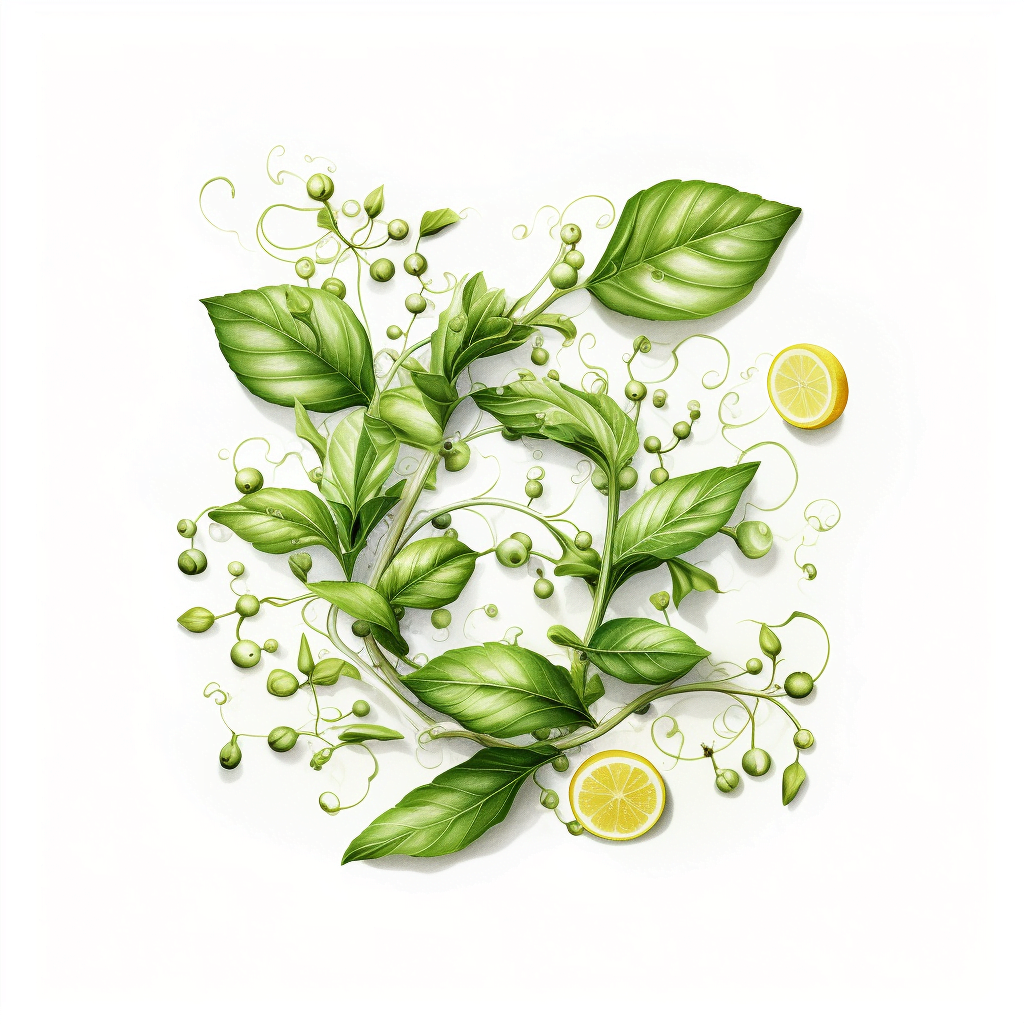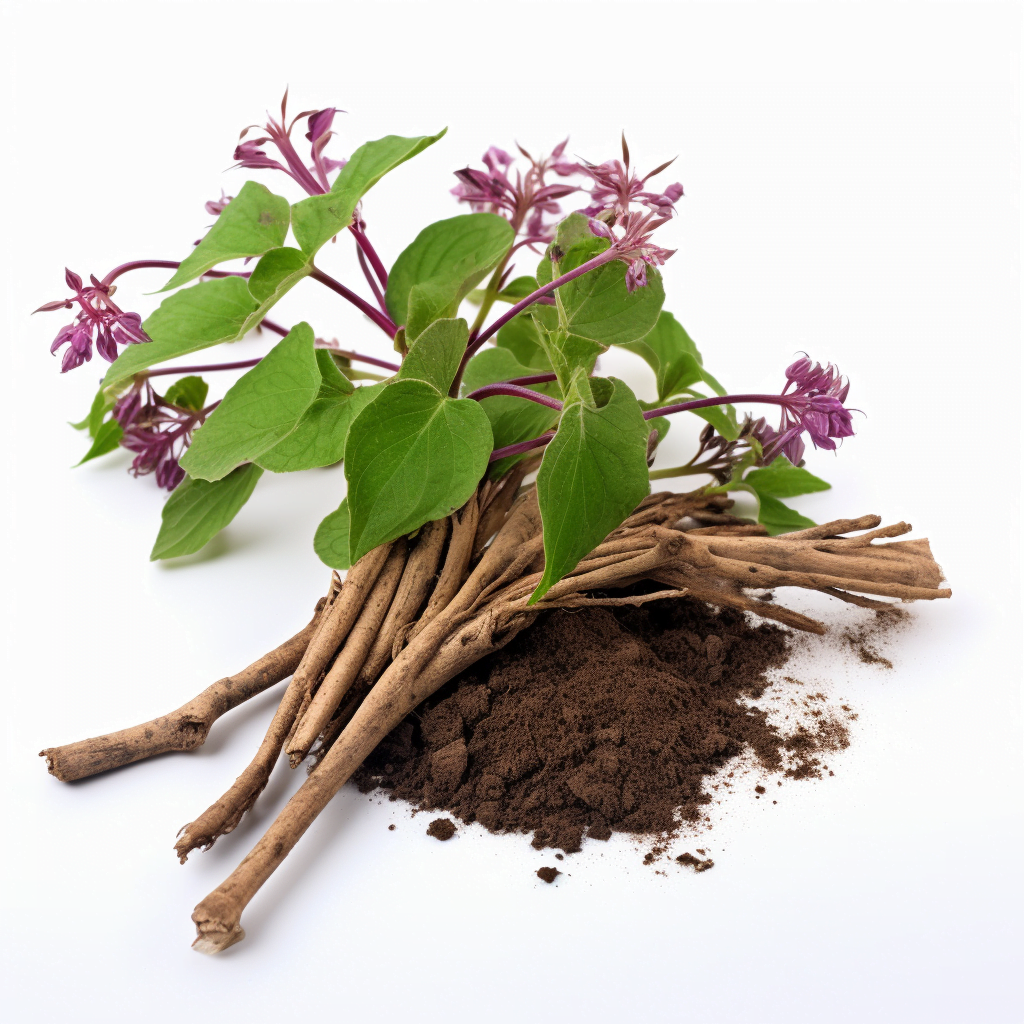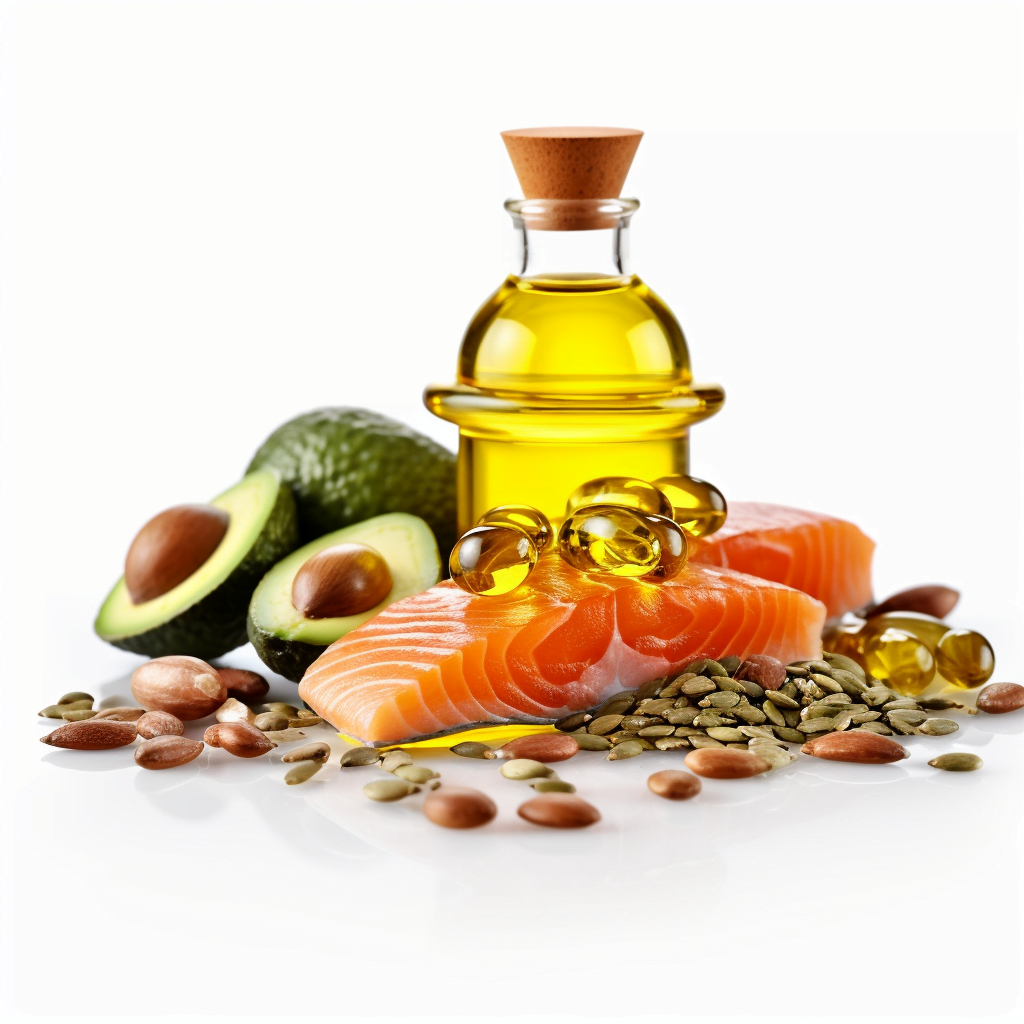Introduction.
In this blog post, we’ll embark on a journey to find the Best Natural Supplements for Anxiety – understanding anxiety and its symptoms, and discussing the role of supplements in managing it.
We’ll delve into the safety and efficacy of these supplements and review notable ones like Vitamin D, B Vitamins, Magnesium, L-Theanine, Ashwagandha, Valerian Root, Chamomile, and Omega-3 Fatty Acids.
Finally, we’ll navigate the importance of third-party testing and ponder whether all anxiety supplements offer the same beacon of relief.
Dealing with anxiety can feel like navigating through a stormy sea.
It disrupts your daily life, making focusing on work or relishing time with loved ones challenging.
While therapy and medication are traditional beacons of hope, some explore the shores of supplements as an alternative or complementary haven.
Understanding Anxiety

Anxiety, a natural yet often overwhelming response to stress, can envelop millions worldwide in its shadow.
NLP techniques and cognitive behavioral therapy emerge as guiding lights for treatment, while integrating essential minerals into anxiety management offers a beacon of hope.
Recognizing the impact of blood sugar levels and the soothing rhythm of deep breathing in managing anxiety are vital.
Acknowledging the higher risk associated with anxiety medications and the need for robust trials in assessing supplements is crucial.
Comprehending anxiety demands recognizing its complex web and embracing a holistic approach.
Symptoms and Causes of Anxiety
Excessive worrying and restlessness, the hallmark symptoms of anxiety, often intertwine with physical signs like a racing heart and tense muscles.
Genetic predisposition, brain chemistry, and life events weave the tapestry of anxiety disorders, each with distinct causes and manifestations.
Early diagnosis and effective treatment are crucial, as different anxiety disorders demand tailored interventions.
Understanding these nuances is especially vital considering the potential risks of anxiety medications at high doses.
By grasping anxiety’s symptoms and causes, individuals and practitioners can forge evidence-based strategies for managing it.
How Anxiety Affects Daily Life

Chronic anxiety casts a shadow over daily activities, work, and social interactions.
It can lead to sleep disturbances, poor concentration, and irritability, impacting productivity and overall quality of life. Understanding these effects is crucial for seeking appropriate treatment and support.
High anxiety levels can also take a toll on physical health, elevating the risk of heart disease and other conditions.
Thus, managing anxiety effectively is vital to minimize its ripple effect on daily life.
Exploring The Best Natural Supplements for Anxiety Relief
Understanding the role of supplements in easing anxiety symptoms is a step towards holistic health.
Natural remedies like lemon balm, vitamin D, and magnesium have garnered popularity for their calming effects.
Considering supplements as part of a broader treatment plan, alongside professional advice, is crucial for a well-rounded approach to anxiety management.
Reviews and scientific evidence are key in exploring the safety and efficacy of various supplements.
With an awareness of their potential adverse effects, especially at high doses, exploring supplements should be done with caution and guidance.
The Role of Supplements in Anxiety Management
Supplements can offer a helping hand in managing anxiety, complementing therapy and lifestyle changes.
Addressing nutritional deficiencies linked to anxiety symptoms is an important aspect of supplement use.
Individual needs and professional guidance are pivotal when using supplements for anxiety management.
Prioritizing safety and efficacy is essential, especially for those seeking natural relief.
Safety and Efficacy of Anxiety Supplements
When considering anxiety supplements, evaluating their safety and efficacy based on scientific evidence and clinical trials is key.
Understanding this helps make informed decisions about their use.
The safety and efficacy of anxiety supplements may vary, depending on individual health conditions and medication interactions.
Seeking healthcare professional guidance is highly recommended, particularly given the potential for adverse effects.
Reviewing Notable Anxiety Supplements
Exploring notable anxiety supplements like vitamin D, B vitamins, and magnesium offers insights into their potential benefits and limitations.
Reviewing these supplements informs about alternative anxiety relief options, considering scientific studies and expert recommendations.
Understanding the benefits and limitations of anxiety supplements empowers individuals to make well-informed decisions about their mental health.
Vitamin D and Anxiety

Exploring the potential impact of vitamin D on anxiety relief unveils a significant link to improved mental health.
Supplementation of vitamin D may subtly influence mood, cognitive function, and neurotransmitters, subtly playing a role in the easing of anxiety.
Ensuring adequate vitamin D levels is pivotal for mental well-being, markedly for those lacking it. Vitamin D supplementation, especially for deficient individuals, could be a key to unlocking anxiety relief.
Benefits of B Vitamins for Anxiety
B vitamins, encompassing B6 and B12, stand as pillars for neurological function and might assist in soothing anxiety.
Acknowledging the benefits of B vitamins in the realm of anxiety entails grasping their role in stress response and neurotransmitter regulation.
B vitamins’ role in emotional and mental health could be understated yet pivotal in easing anxiety.
Delving into the merits of B vitamins for anxiety also means looking at their part in energy and cognitive processes.
Notably, an anxiety-reducing diet often includes B vitamin-rich foods for their subtle anxiety-relieving traits.
Magnesium’s Role in Anxiety Relief

Magnesium, linked to a calming presence, may aid in tempering anxiety.
Its role touches on neurotransmitter balance and stress response, lessening muscle tension, and fostering calmness.
Magnesium might also enhance sleep and subtly decrease anxiety levels.
Selecting the right magnesium for anxiety depends on individual needs and health conditions.
Investigating magnesium’s potential in anxiety management offers a glimpse into its effectiveness and appropriateness.
L-Theanine and its Calming Effects

L-Theanine, an amino acid, fosters relaxation and diminishes stress.
Research indicates it might enhance sleep quality and ease anxiety symptoms.
Present in green tea and as a supplement, it has been observed to lessen anxiety and heart rate.
L-Theanine elevates GABA levels, which regulate anxiety.
Highlighting terms like “natural remedies” and “mental disorders” adds depth to L-Theanine’s soothing effects.
Stressing terms like “randomized controlled trial” and “higher risk” underscores the value of research and potential risks.
Overall, L-Theanine is a key player in managing anxiety, offering a nature-based method to lessen anxiety symptoms, backed by science.
Herbal Supplements for Anxiety
Herbal supplements for anxiety typically include valerian root, chamomile, and ashwagandha. Many seek these as natural alternatives to prescription drugs, due to concerns over side effects.
Research shows that certain herbal supplements can effectively lessen anxiety disorder symptoms, making them a preferred choice in holistic anxiety treatments.
Studies shed light on their role in managing mental disorders.
Including natural remedies like these supplements, coupled with techniques like deep breathing and mindfulness, aligns with the American Psychiatric Association’s comprehensive approach to anxiety management.
The Power of Ashwagandha

Ashwagandha, an adaptogenic herb, offers potential relief from stress and anxiety symptoms.
Research has shown its ability to reduce cortisol levels, affecting anxiety disorder and stress response.
Traditionally used for mental health, Ashwagandha has potential in alleviating anxiety disorder symptoms.
Its adaptogenic nature makes it a remedy worth exploring for anxiety management.
Valerian Root and its Anxiety-Reducing Properties

Valerian root, used for anxiety relief and relaxation, has shown potential in studies for reducing muscle tension and improving sleep.
Its calming effects are tied to social anxiety disorder improvements, and it’s studied for panic disorder symptom relief. Its influence on GABA levels contributes to its anxiety-reducing properties, making it a notable option for those seeking alternatives to conventional anxiety medications.
Chamomile’s Soothing Influence

Chamomile, commonly ingested as a tea, is recognized for its calming and comforting impact on the body and mind.
Studies suggest that chamomile tea may alleviate symptoms of generalized anxiety disorder and improve sleep quality while reducing chronic anxiety symptoms.
The natural compounds in chamomile show promise in alleviating physical manifestations of anxiety and potentially lowering blood pressure and heart rate.
Omega-3 Fatty Acids and Anxiety
Omega-3 fatty acids, akin to liquid gold in fatty fish and supplements, dramatically bolster mental health and overall well-being.
Studies have illuminated their extraordinary potential in diminishing the shadows of anxiety and depression, placing a spotlight on the vital roles of EPA and DHA in the theater of cognitive function and emotional health.
Feasting on omega-3 fatty acids may be akin to arming oneself in the battle against anxiety disorders.
Research has voyaged through their role in dampening anxiety levels, unfurling a promising sail for anxiety management.
The American Psychiatric Association, like a wise sage, acknowledges the potential of these fatty acids in the realm of mental disorders, heralding their significance in the quest for anxiety relief.
Understanding the Connection
The intricate dance between omega-3 fatty acids and anxiety may involve the mystical workings of neurotransmitter function and the enigma of inflammation.
Scientific exploration has revealed that omega-3 fatty acids can deftly maneuver the brain’s reaction to stress and anxiety.
These essential nutrients stand as stalwart guardians of healthy brain function, adeptly managing the specters of anxiety.
Clues also whisper that omega-3s might touch the strings of serotonin levels, deeply entwined with the mysteries of anxiety disorders.
Yet, the full map of this connection awaits further discovery by scientific adventurers.
Best Sources of Omega-3 Fatty Acids

Fatty fish such as salmon, mackerel, and sardines, are bounteous treasures of omega-3 fatty acids,
indispensable for cognitive vigor and emotional resilience.
Plant kingdoms offer their own gifts, with flaxseeds, chia seeds, and walnuts bestowing alpha-linolenic acid, a variant of omega-3, like a soothing balm for anxiety.
Supplements like fish oil and algae oil are concentrated elixirs of EPA and DHA, potent allies in the skirmish against anxiety symptoms.
Avocados and hemp seeds, brimming with omega-3 riches, also join the crusade to temper anxiety.
A cornucopia of diverse omega-3 sources is the cornerstone of mental fortitude, potentially quelling the tempest of anxiety and nurturing well-being.
The Importance of Third-Party Testing
Third-party testing emerges as a pivotal beacon in guaranteeing the integrity, purity, and veracity of components in anxiety supplements.
It bestows consumers the power to choose with enlightenment, fortified by assurances of safety and effectiveness.
Through the crucible of stringent testing, claims on labels are put to the test, and lurking contaminants in anxiety relief concoctions are unmasked, staving off the risk of malevolent effects.
The gravitas of third-party testing is paramount in warding off harmful side effects, thus becoming an indispensable criterion in the selection of supplements.
By favoring supplements that have braved this trial, individuals can allay fears about the trustworthiness of their chosen armaments, bolstering their mental well-being and mastery over anxiety.
Why It Matters
Grasping the import of third-party testing is vital for choosing anxiety relief products that stand as paragons of quality.
This rigorous vetting shields against the perils of mislabeling and deceit, fostering an era of transparency in the alchemy of supplement production.
It upholds the sanctity of the quality and potency of anxiety supplements, setting unwavering standards for safety and efficacy.
Consumers reap the rewards of this exacting scrutiny, as it enforces accountability and empowers them with the torch of informed choice.
By understanding the weight of third-party testing, individuals can select anxiety supplements that have withstood the fiery crucible of quality and safety assessments with confidence.
What to Look for in Test Results

In the quest for anxiety supplements, it is paramount to honor those that have endured the rigorous rites of third-party testing for purity and potency.
Additionally, vigilance for the absence of common allergens and contaminants is essential to safeguard well-being.
Verifying the presence of the requisite amount of active ingredients stands as the keystone for the supplement’s efficacy.
It’s equally crucial to shun supplements tainted with harmful additives or synthetic sorcery, to minimize the specter of adverse effects.
Lastly, seeking supplements bathed in positive acclaim from trusted oracles can shed light on their efficacy and safety.
By focusing on these cardinal aspects in test results, individuals can navigate with wisdom when choosing the finest supplement for anxiety relief.
Are All Anxiety Supplements Equally Effective?
Not all anxiety supplements are created equal in their power to soothe.
The efficacy of a potion hinges on the alchemy of its ingredients and the precision of its dosage. Among the pantheon of top supplements for anxiety relief, ashwagandha, valerian root, and omega-3 fatty acids stand as notable champions.
Seek counsel with a healthcare sage before embarking on a journey with new supplements.
Conclusion
In summing up this odyssey in managing anxiety, a constellation of supplements emerges, each offering its unique solace.
It’s crucial to traverse the labyrinth of anxiety’s symptoms and origins, as well as its shadows over daily existence.
Supplements play a pivotal role in the crusade against anxiety, with luminaries such as vitamin D, B vitamins, magnesium, and L-Theanine. Herbal allies like ashwagandha, valerian root, and chamomile also offer their calming embrace.
Moreover, omega-3 fatty acids have unveiled a path to anxiety relief.
Yet, it’s imperative to champion safety and efficacy by selecting supplements that have weathered the storm of third-party testing.
The landscape of anxiety supplements is varied, and thorough exploration and consultation with a healthcare guide are essential to discover the most fitting remedy for individual needs.
Disclaimer: This article is for informational purposes only and should not replace professional medical advice. Consult with a healthcare professional before starting any new exercise or diet regimen.
This article may contain affiliate links, and if you click on them and make a purchase, I may earn a commission at no additional cost to you.




